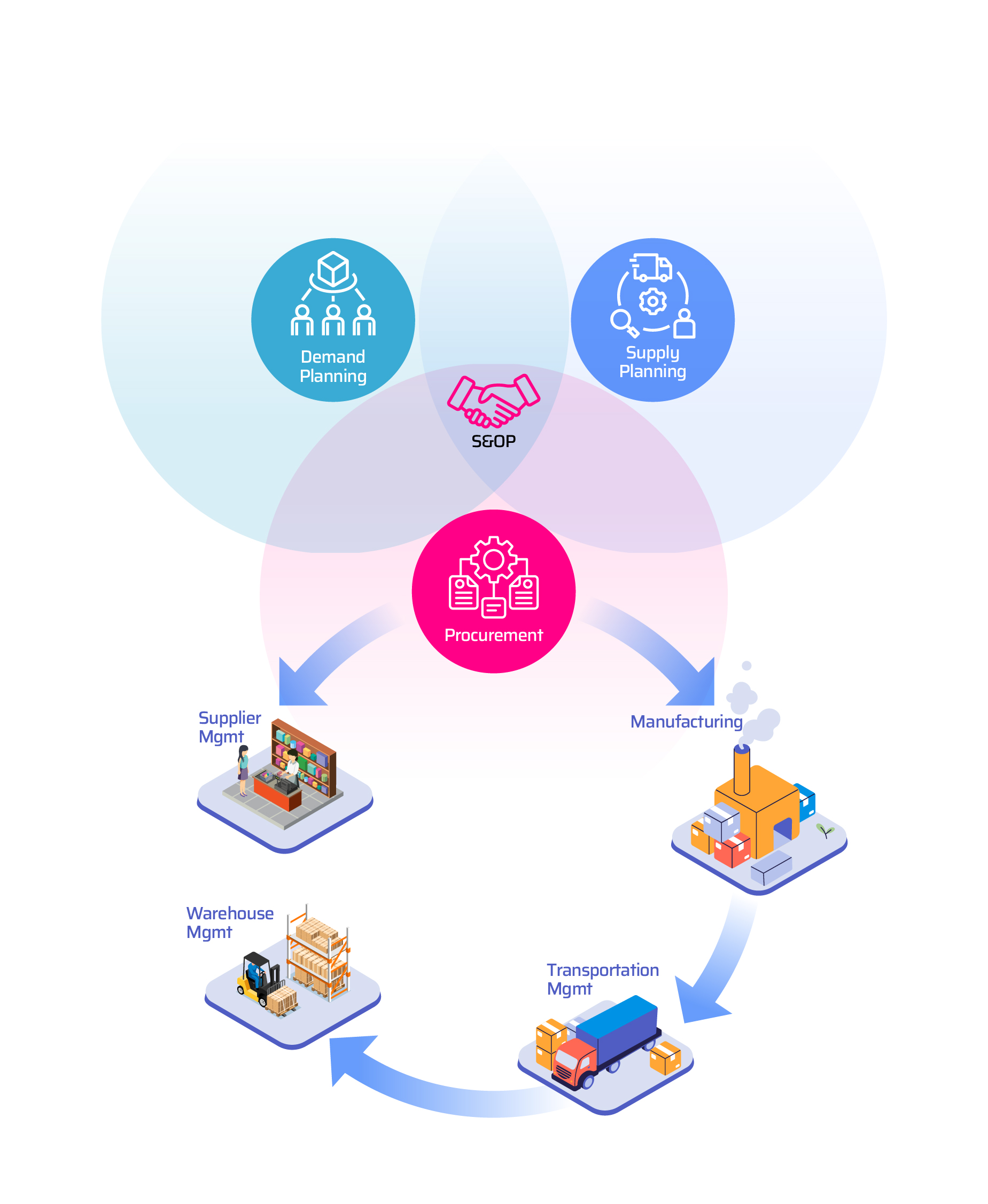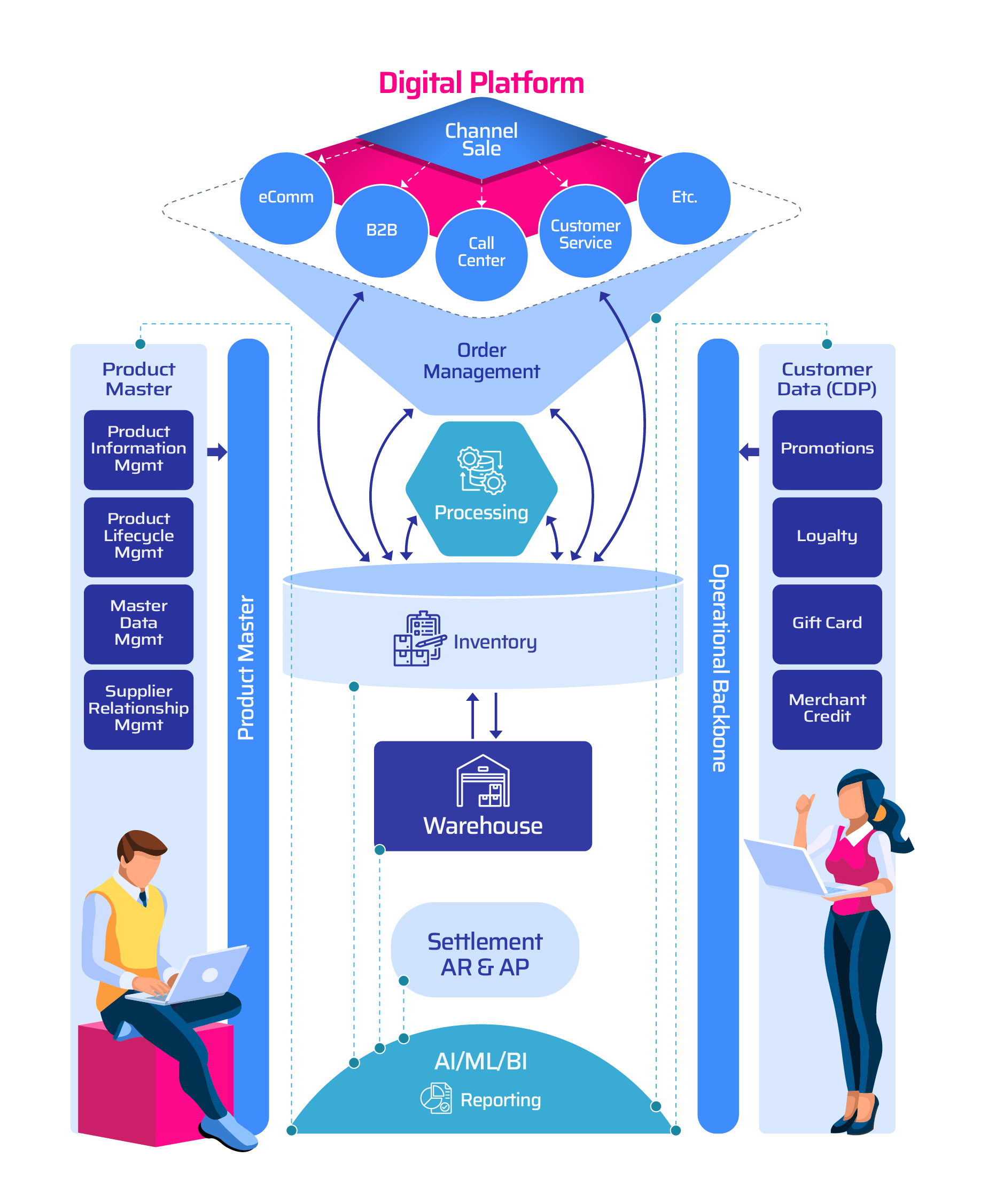
Listen to this blog
In today’s continuously evolving digital and dynamic retail environment, a connected supply chain is essential for businesses aiming to fulfill consumer demands for seamless, integrated shopping experiences across multiple platforms—whether in-store, online, or via mobile. A robust supply chain that ensures fluid, real-time access to inventory, order fulfillment, and customer service is essential for every company in the competitive retail landscape. This involves connecting suppliers, manufacturers, warehouses, 3PL’s, retailers, and customers to create a cohesive and effective network. Companies can no longer overlook the importance of efficiency enhancements, cost reduction, and delivering consistent experiences across all channels.
Why is connected supply chain crucial?
A connected supply chain is the backbone of omnichannel excellence. It relies on accurate product and customer information, efficient order processing, precise inventory levels, streamlined fulfillment processes, timely delivery, and accurate invoicing. Synchronization across these areas is essential for modern businesses due to the increasingly complex and global nature of supply chains, rising customer expectations, and the rapid pace of technological change. It ensures that the various components of a supply chain work together seamlessly.
The benefits of a connected supply chain are evident across all aspects of operations, being key to both agility and efficiency. Here are some key reasons why a connected supply chain is vital:
It increases transparency and visibility across operations, allowing businesses to proactively identify disruptions and bottlenecks, maintain appropriate stock levels, optimize fulfillment cycles, and prevent losses.
By streamlining processes and reducing redundancies, a connected supply chain enhances operational efficiency, leading to faster order processing, reduced lead times, optimized resource allocation, and reduced costs by minimizing errors.
The ability to respond quickly and flexibly to disruptions is one of the cornerstones of a unified supply chain. With supply chains disbursed globally, boundaries become blurred, making them more vulnerable to disruptions, whether caused by natural disasters, pandemics, geopolitical tensions, or supply shortages. A unified supply chain enables companies to pivot operations and reallocate resources despite large-scale disruptions, as demonstrated during the COVID-19 pandemic.
Innovation and data-driven decision-making are important functions of a unified supply chain. It creates a wealth of data at every stage of the process, and if analyzed properly, it can provide visibility into S&OP, inventory levels, bottlenecks, fulfillment cycles, and more.

Achieving a connected supply chain begins with the digital integration of systems across various stages of the supply chain. This includes integrating sourcing operations (via procurement applications), supplier management (via SRM), S&OP processes (connected planning modules), enterprise resource planning (via ERP), Inventory and Warehouse Management (WMS), Transportation Management (TMS), Customer Relationship Management (CRM).
One of the significant benefits of digital integration is the ability to share real-time data across the supply chain. The inability to share information in real-time presents two major challenges:
Siloed information creates a lot of dependencies for downstream flows and lateral processes. This results in longer lead times and limited control over supply chain processes.
Without timely information, businesses could make poor or wrong decisions, severely impacting operational agility and nimbleness.
An integrated supply chain, via collaborative platforms and technologies like cloud-based SaaS solutions, enables applications and partners to work together effectively. These platforms facilitate communication, collaboration, and data exchange across the supply chain, breaking down silos and fostering a more cooperative approach to problem-solving.

How Visionet can help in supply chain connectivity and omnichannel excellence
Visionet has a dedicated, fully functional team of business process experts, technical engineers, business analysts, and change management experts who bring in-depth expertise to the retail industry. We enhance retail efficiency with omnichannel, data analytics, intelligent order management, and supply chain expertise, delivering seamless, efficient, and personalized experiences. Visionet’s retail offerings enable data insights across the supply chain and operations, elevate business process efficiencies, and redefine the customer experience.
Helping retail companies meet key business objectives
Over the past few years, the retail sector has undergone significant changes driven by factors such as the rise of e-commerce, the adoption of omnichannel approaches, increased personalization, and complex supply chain networks. Today's consumers are more interconnected, less brand loyal, and increasingly inclined to shop across multiple retailers. However, these shifts also offer retailers new opportunities to leverage emerging technologies and adapt to remain competitive in the marketplace.
Here’s how Visionet helps retailers stay ahead of the competition:
- Unifying supply chain operations
Visionet's experts have decades of experience in supply chain assessment, blueprinting, integration, ERP implementation, and more. We excel at connecting siloed applications and creating a unified supply chain. - Data-driven decisions for profitability
Visionet adopts advanced technologies such as connected commerce, AI, augmented reality, cloud computing, and robotics to create highly personalized experiences for customers. We assist retailers in making data-driven decisions that enhance and align with market changes. - Drive operational efficiencies with agility
Adapting and responding to market changes quickly has become a necessity for retailers. By continuously seeking ways to optimize operations and enhance agility, retailers can boost performance and maintain a competitive edge. - Deliver omnichannel customer experiences
To meet the expectations of today’s customers, retailers must provide seamless omnichannel experiences that effortlessly integrate physical and digital realms. Visionet ensures a cohesive brand experience across all channels.
To sum up
An integrated supply chain and digital transformation in retail, driven by Visionet, are paramount to stay competitive in today's fast-evolving market. By leveraging advanced technologies, Visionet enables retailers to enhance customer experiences, streamline operations, and achieve greater efficiency. Visionet's innovative approach not only improves decision-making through data-driven insights but also drives sustainable growth and profitability.

Mohammad Khalid, Senior Vice President
Mohammad Khalid is a thought leader and an expert in large scale mission critical business and digital transformation programs. Currently working with Visionet as a senior vice president, he has more than 22 years of experience in Information Systems and IT services career in retail and CPG industry.




